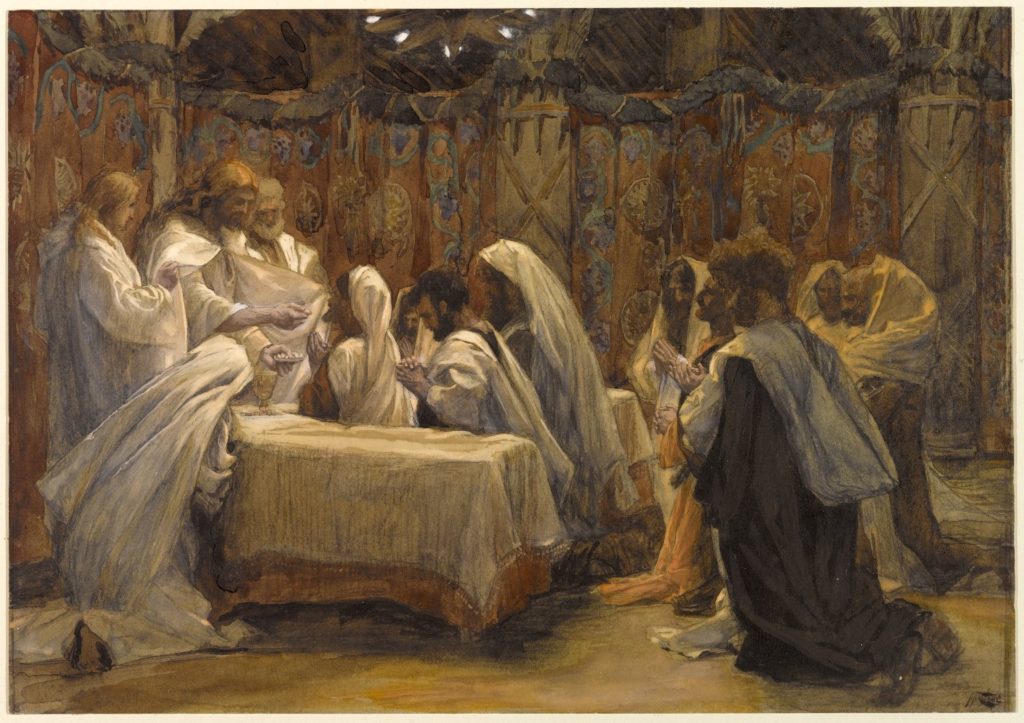The world of today encourages a radical individuality, in the interest of which we are urged to break with tradition and with the imperfect, but indispensable, institutions that bind us to our ancestral past, to each other, and to our children’s children: namely the family, the Church, and those nations still willing to respect these indispensable pre-political and spiritually enriching institutions.
But we Catholics weren’t born yesterday. We are members of a worshipping family that has for 2000 years been pondering, probing, and practicing the implications of one man’s life and death.
And the reason we have dedicated so much time and energy to this is that – in all truth – each of us can say that we know someone who knew someone who knew someone who knew someone who actually saw the Risen Christ. We didn’t make this up. As we should well recall during this Lenten season preparing for Easter, we trace our faith back to witnesses.
And yet, our faith isn’t backward facing. Christ assured us that the Spirit of Truth would lead us gradually to the whole truth. The deposit of faith is fixed, the Scriptural canon is closed. The Church teachings will not change, but what will grow – what must either grow or die – is our astonishment at the unsuspected and startling implications of what happened to the human race 2000 years ago and how decisive it is for understanding our present predicament.
In fact, if we manage not to destroy ourselves in the meantime, Catholics living 20,000 years from now will look back on us, and they may think of us as early Christians. And they will be right. The human race has hardly begun to reckon with the meaning of Christ’s life, death, and resurrection, even though those events fundamentally altered the human condition once and for all.
Imagine all the changes that have taken place in the last two millennia. Imagine all the changes just in the last few decades! So dizzying are these changes that it is tempting to think that nothing lasts, that nothing abides.
But we who are members of the great Catholic family know one thing for sure. If we could transport ourselves forward in time 20,000 years, the superficial changes would be unimaginable. But there would be one thing that we would easily recognize. If we made our way to a Catholic Church – whether hidden in a futuristic catacomb or in a great towering cathedral – we would find there the Mass, and it would not have fundamentally changed.

At its deepest core, every world-historical event in history represents fallen humanity’s clumsy response to the question Jesus asked his disciples: “Who do you say that I am?” We can tune in to CNN or Fox News to find out how shabbily we are answering that question and what a mess fallen humanity has lately made of the gift of freedom, but we discover how that freedom was meant to be worthily exercised at the Eucharistic altar.
It is from there that the Word goes forth – deposited in the hearts of ordinary believers – to bear witness to what Pope Paul VI declared in 1970: “Jesus Christ is the beginning and the end, the alpha and the omega. . .the great hidden key to human history and the part we play in it.”
Human history after the Ascension would involve (in the words of the finest Catholic theologian of our age) the reciprocal intensification of the Yes and the No to Christ. If our Yes to Christ is to reciprocally intensify in response to today’s intensifying No, we will need the sustaining nourishment that only the Eucharist can provide.
The Eucharistic liturgy is also where we bind ourselves to our ancestors going all the way back to Jesus’ last supper with his disciples, and to the first Passover in Egypt and beyond. Turning forward, the Mass is the prefiguration and foretaste of the Messianic Banquet we will celebrate when we enter God willing into full communion with the Trinitarian Life of God.
If we could see the mysteries of our faith and the utter uniqueness of the Catholic Church with eyes not dulled by long familiarity, our gratitude for the unearned and unmerited privilege of being Catholic Christians would revive.
And our joy might become a light in the enclosing darkness by which others might be led to discover, with G. K. Chesterton, how much bigger the Catholic Church is on the inside than it appears on the outside.














